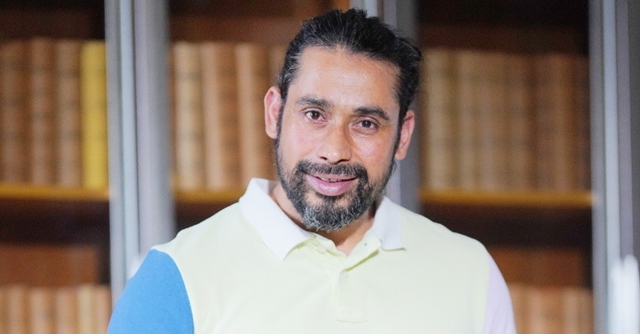
Decentralising artificial intelligence: Road to AI efficiency


Only a couple of decades ago, technological advancements were only limited to science fiction. Today, the integration of technology across our day-to-day lives has brought us far closer to a tech-savvy world. From education to banking to healthcare – every aspect of modern life has witnessed a technological revolution, with almost every industry capitalising on a centralised system of data collection. But how much do we know about all these advancements that dictate our lives today? The answer is very little, owing to the lack of transparency in how the data is stored and utilised.
With the onset of generative AI and sophisticated machine learning solutions, it has become increasingly imperative to understand how this new world order works and how our data is utilised – with and without our consent.
The reliance on centralised AI models presents a significant challenge. As AI pervades increasingly throughout our daily lives, the current paradigm has resulted in a gradual erosion of control over the content we consume and the actions we undertake. To mitigate these challenges, a transition towards a decentralised AI systems is necessary, which prioritise transparency, and thereby empower consumers to actively participate in one of the most transformative technologies of our era.

Decentralised data ownership embodies a system where users maintain control over their data, granting access permissions as they see fit. Within the realm of the Internet of Things (IoT), blockchain technology facilitates the realisation of decentralised data ownership. By leveraging blockchain for IoT data storage, users can guarantee the security and immutability of their data.
The process of decentralising AI has already begun to transform a plethora of industries/organisations, as is evidenced by its immense growth – projected to reach US$980 million in 2030 from US$230 million in 2021.
Democratising AI: Decentralisation vs Centralisation

A centralised approach to AI infrastructure offers a centralised authority in streamlining decision-making processes, consolidating vast data resources, and optimising their AI systems. Currently, a significant portion of AI operations exist in centralised ‘black boxes’, controlled by only a few influential enterprises. This concentration of control undermines the potential of AI to democratise various sectors and grants undue influence over society, economy, and creativity/innovation to a select few entities that operate with minimal oversight. While organisations have traditionally relied on centralised data management systems for the Internet of Things (IoT), these systems are frequently susceptible to cyberattacks and data breaches.
Conversely, decentralised data management systems offer enhanced security and privacy by distributing data across a network of interconnected nodes. By evaluating the strengths and weaknesses of both approaches, organisations can make well-informed decisions regarding the optimal data management strategy. The integration of blockchain technology across industries paves the way for nuanced data management and operational efficiency – expanding into sectors like healthcare, supply chain, and finance – allowing room for transparency and enhanced digital/data security.
Beyond data management, BT also offers the potential for implementing decentralised access control mechanisms within the digital realm. Smart contracts, self-executing agreements with pre-defined terms codified directly within the program, can be utilised to enforce access control policies. This allows, for instance, the creation of a smart contract that grants access to a specific device solely to authorised users. Furthermore, blockchain's capacity to define and track intellectual property usage, coupled with the potential for automated compensation, can incentivise user innovation within the ecosystem.

Leveraging this concept, IBM recently developed a solution to safeguard intellectual property through the creation of an automated marketplace, which ensures a robust network between all parties encompassing a patent’s use and creation.
Is Decentralisation Actually Better?
While decentralisation of AI systems is paving the way towards a more democratic and transparent ecosystem, challenges persist.

One critical obstacle to deploying blockchain-based systems for managing data is their scalability. The burgeoning number of devices necessitates a blockchain network capable of handling the exponential growth in transaction volume. A significant challenge for organisations lies in scaling these networks to accommodate this expansion without sacrificing security or the decentralised nature of blockchain technology.
Furthermore, the integration of AI and blockchain technologies within the digital ecosystem presents a complex challenge – effective AI algorithms are required to necessitate access to vast amounts of data, potentially conflicting with the core principles of decentralisation and data privacy championed by blockchain. Striking a balance between these competing requirements, while ensuring the secure operation of AI algorithms within a blockchain network, is a significant hurdle to overcome.
As the AI ecosystem continues to progress, the core principal/aim must primarily be to safeguard databases and secure intellectual properties/private data. In order to successfully implement such privacy-preserving solutions for data management, organisations continue to carefully tread the path towards decentralising AI to necessitate the development of effective strategies.

Looking ahead, the future of privacy-preserving data management holds immense promise. Gradual advancements in both blockchain and AI technologies will continue to fuel innovation in this domain, allowing organisations to unlock a new era of secure and efficient data management.

Tirath Sharma
Tirath Sharma is CTO & Co-Founder of OneTo11.
